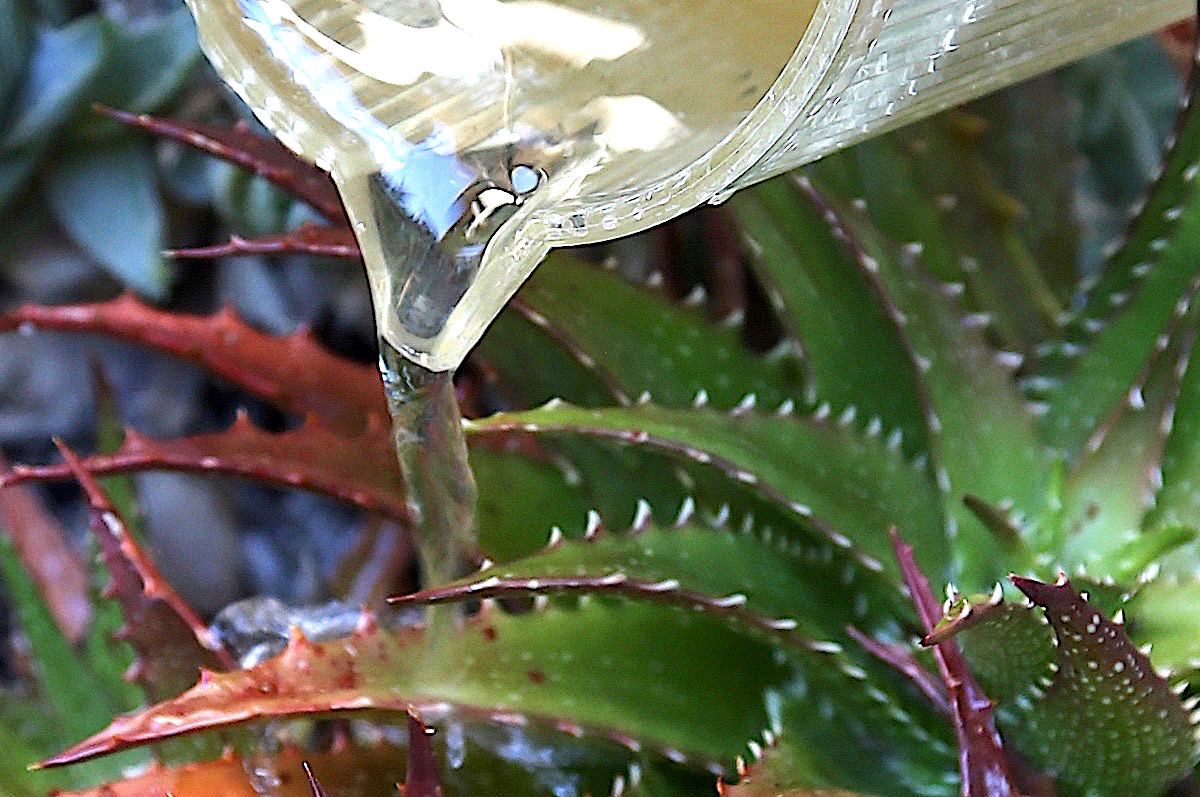
Water pH for Succulents
Did you know that giving succulents water with the wrong pH can inhibit the plants' ability to take up nutrients? This leads to less vigorous growth and may cause yellowing. Urban and residential water tends to be alkaline, meaning it has a pH higher than 7, which is neutral.
Minerals optimally accessed in slightly acidic soil include nitrogen, phosphorus, potassium, sulfur, calcium, magnesium, iron, and manganese.
Rainwater is slightly acidic, which is why a few days after a storm, your succulents (all your plants for that matter) look amazing.
Aim for 5.5 to 6.5
During a recent Cactus & Succulent Society webinar, Ernesto Sandoval advised that the proper pH for watering succulents is approximately 5.5 to 6.5 (slightly acidic). Manager of UC Davis' Botanical Conservatory, Ernesto is renowned for his knowledge about growing succulents, their root development, ideal soil mixes and more.
Acidify the water
The pH of residential water and its mineral content varies by region. If yours has a high mineral content (typical of San Diego), add 2 tablespoons of vinegar per gallon of water. If your water is low in minerals (typical of Davis west of Sacramento), add one T per gallon.
Test to be sure
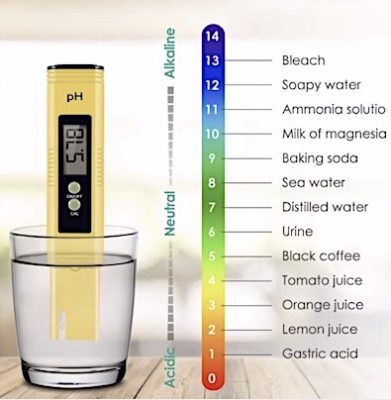
pH meter
Check your water with a pH meter. A bargain at around $13, a pH meter provides peace of mind. Plus you can use it to test other liquids, including your drinking water, pool, aquarium and more.
Even better: Citric Acid
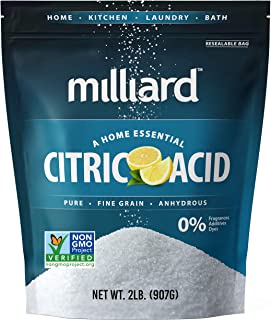
Citric acid
For a gentler alternative to vinegar, use fine grain citric acid (about $15 for a 2-pound bag). Affiliate links.
One-half teaspoon citric acid powder is equivalent to 2 tablespoons vinegar.
For a 5-to-6 percent solution, add 1 tablespoon citric acid powder per cup of purified water. Or one part citric acid to 19 parts water.
Related Info on this site
How to Water Succulents
How to Water Succulents For succulents in the garden, in containers, and if there’s no drainage It really is this simple ~ Aim to keep soil about as moist as a wrung-out sponge. Watering about once a week in summer and once a month in winter should do it. Water thoroughly to soak the roots and…
How Rain Benefits Succulents
Here’s how rain benefits succulents: It provides dissolved minerals and washes away dust that inhibits photosynthesis; it dilutes and flushes salts and harmful chemicals that have built up in the soil from tap water; and it provides nitrogen essential to growth,

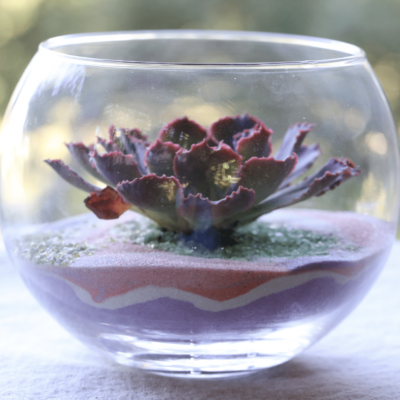
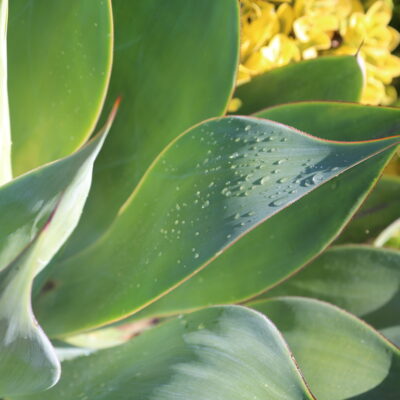
Do you use the same amount of citric acid as you would vinegar?
Hi Shawna — Thanks for asking. I neglected to include that in the article and have since added it: One-half teaspoon citric acid powder is equivalent to 2 tablespoons vinegar.
You’re right, Mark. I need to clarify with the experts. Apologies!
How much of a pH adjustment is provided with the dosages you recommend?
Thanks for this! Can you explain why citric acid would be better than vinegar?
I was told it’s “gentler,” which is open to interpretation, but I take it to mean easier on plant roots and metabolism…as opposed to vinegar, which is harsher. I don’t think it matters much but it seems that the more fiddly or rare the succulent, the more you want to go easy on it. I welcome input from anyone who’s tried both, especially on the same plant.
Hi, so I have been having problems with those horrible tiny ants. I found a bunch in my succulent plants, and so I found a natural remedy, unfortunately: Lemon juice and/or citrus essential oils. A couple days later, I realized I had been slowly killing my plants because I had messed up their perfect pH balance. So, my question is: How do I improve their now lost pH balance?
Thanks so much!
As I recall from high school chemistry, baking soda neutralizes acids…so maybe drench the soil with a mild solution of baking soda and water? But let’s go back to the original issue of ants, which I’m much more confident addressing—in fact, I did so in a post on my site: “Ants in Your Succulents? What to Do”.